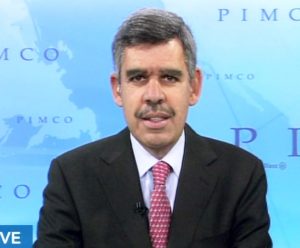- December 10, 2017
- Posted by:
- Category:BLOG, ExPress, Mumbai
By Sitaraman Iyer, CFA
Another similarity I find between investment and cricketing is the way decision-making committees are structured.
A research analyst would be the equivalent of a scout in the cricketing world; a fund manager would be akin to a selector; and a chief investment officer would be like the chairman of selectors. In the investment field, a team is headed by the chief investment officer with research analysts presenting their findings to fund managers. In the cricketing world, the selection committee is administered by the chairman of selectors with scouts presenting their reports to selectors.
Scouts/analysts keep tracking players/companies throughout the year in the hope that they would be able to identify talent/companies well before they are ripe to succeed.
One may wonder:
- Why is this process so important
- Why can’t fund managers/selectors do the scouting themselves
The answer to the first question is simple: identifying the right talent/company is the only way to be ahead of competition.
To the second query, my answer is that fund managers/selectors simply don’t have the time. There are way too many players/companies to keep a track of, which is why analysts/scouts doing the preliminary screening makes sense.
The analyst/scout’s job is mundane and non-glamorous, and involves a lot of observing, number-crunching, and talking to relevant stakeholders. Ability to communicate well and present findings in a succinct manner to superiors work well in an analyst/scout’s favour.
On the other hand, a selector/fund manager must have the skill to process all the data that is provided and arrive at an objective decision. He must select the team/portfolio by keeping in mind both medium- and long-term goals. Excess focus on near-term benefits may result in one not building the teams / portfolio for the long term. For instance building a test team only that is only good for home conditions/ building a portfolio with too many momentum stocks that can get severely impacted during turn of a cycle.
Fund managers/selectors have to be nimble enough to question old assumptions and validate their beliefs every now and then. While building team/portfolio for the long term is always recommended, sticking to poor performers during adverse times can invite criticism. A good selector/fund manager must have the patience and ability to ignore such censure for the good of the long term. An example of this is backing a talented novice/company even before the player/company has started to deliver results. Think of Virat Kohli just before the third test in the 2012 series in Australia, or Bharti Airtel just after listing in 2002.
Having said this, one also has to have the ability to take unemotional ruthless decisions when things don’t go as planned. Quite often, sticking to winners who have delivered in the past can be disastrous for the team/portfolio. A company, like a player, can have a ‘best before’ date: think of the Fab Four of Indian cricket during their twilight years; or of Nokia. It requires guts to drop a player/company that has delivered in the past but is now performing poorly.
The chief of selectors/ investment officer’s job is to drive the overall strategy of the team/portfolio, keeping emotions at bay. He/she often bears the brunt of a decision gone wrong, but also takes credit for success. Though a fund manager/selector’s job looks glamorous, it is unlikely one gets that job without having spent enough time doing scout/analyst’s job.
–SI
PS: Pictures of Mohamed A El-Erian, Ex-CIO PIMCO and MSK Prasad, Chairman of Selectors, BCCI


